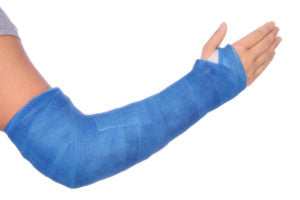Some people report pain in their joints, especially their knees and wrists, after drinking alcohol. However, researchers have not be able to identify a link between alcohol consumption and joint pain.
Studies instead suggest that obesity is more often associated with joint pain than any lifestyle factors such as alcohol consumption or smoking. Nevertheless, there are some ways that alcohol might indirectly contribute to joint pain.
Research shows that chronic heavy alcohol use, especially during adolescence and young adult years, can dramatically affect bone health and increase the risk of osteoporosis later in life.
What do doctors advise? Drink less for strong bones.
Calcium is an essential nutrient for healthy bones, and alcohol is its enemy. "Alcohol has multiple effects on calcium," says Primal Kaur, MD, an osteoporosis specialist at Temple University Health System in Philadelphia. "The bones deteriorate because not enough calcium is getting into bones -- and the body is leaching it away from bones."

How Does Alcohol Harm Your Bones?
When you indulge too much -- 2 to 3 ounces of alcohol every day -- the stomach does not absorb calcium adequately, Kaur explains.
"Alcohol interferes with the pancreas and its absorption of calcium and vitamin D. Alcohol also affects the liver, which is important for activating vitamin D -- which is also important for calcium absorption."
The hormones important to bone health also go awry. Some studies suggest that alcohol decreases estrogen and can lead to irregular periods.
As estrogen declines, bone remodeling slows and leads to bone loss. If you're in the menopausal years, this adds to the bone loss that's naturally occurring, says Kaur.
There's an increase in two potentially bone-damaging hormones, cortisol and parathyroid hormone. High levels of cortisol seen in people with alcoholism can decrease bone formation and increase bone breakdown. Chronic alcohol consumption also increases parathyroid hormone, which leaches calcium from the bone, she says.
Also, excess alcohol kills osteoblasts, the bone-making cells, Kaur adds. To compound the problem, nutritional deficiencies from heavy drinking can lead to peripheral neuropathy -- nerve damage to hands and feet. And chronic alcohol abuse can affect balance, which can lead to falls, she explains.
Drinking and Your Risk of Fracture
Heavy drinkers are more likely to suffer frequent fractures due to brittle bones and nerve damage, especially hip and spine fractures, Kaur says. Those fractures will likely heal slowly because of malnutrition.
When you quit drinking, your bones may recover fairly rapidly. Some studies have found that lost bone can be partially restored when alcohol abuse ends.
If you're a smoker, it's important that you quit that habit, too. "If you are a heavy drinker who also smokes, it makes your bone problems even worse," Kaur tells WebMD. "You need to quit both habits, or osteoporosis treatment is not going to work." In fact, studies suggest that quitting smoking helps people recover from alcoholism.


